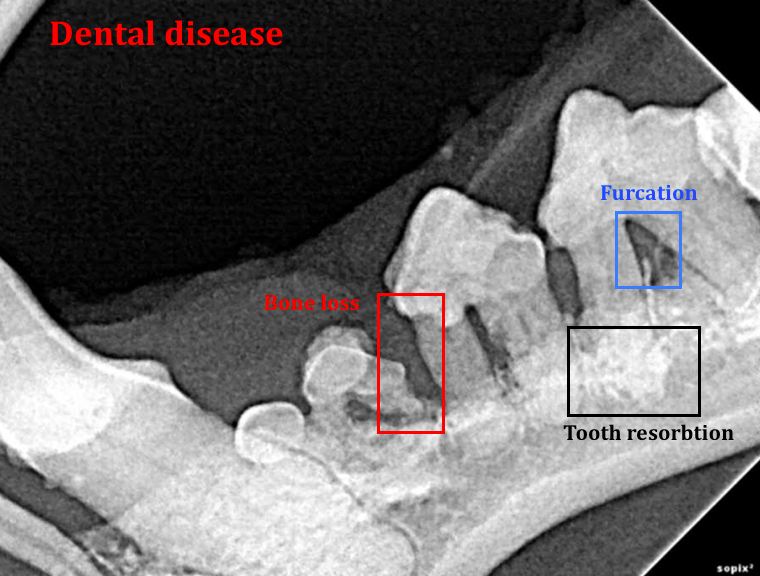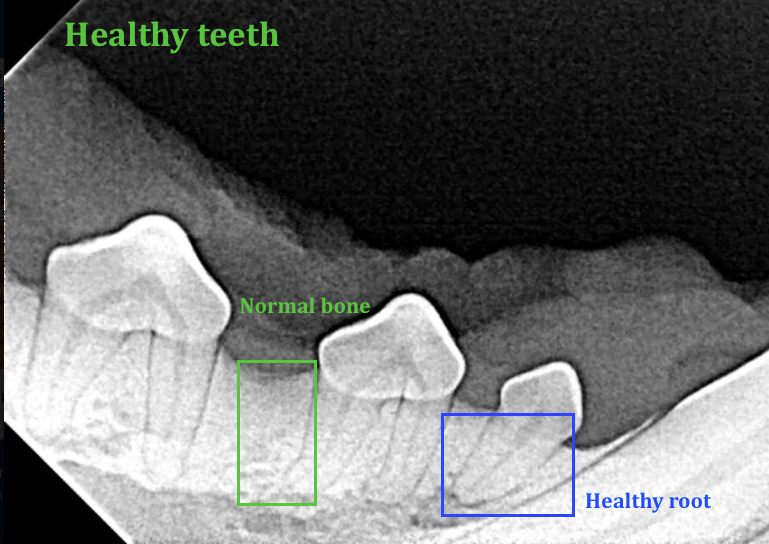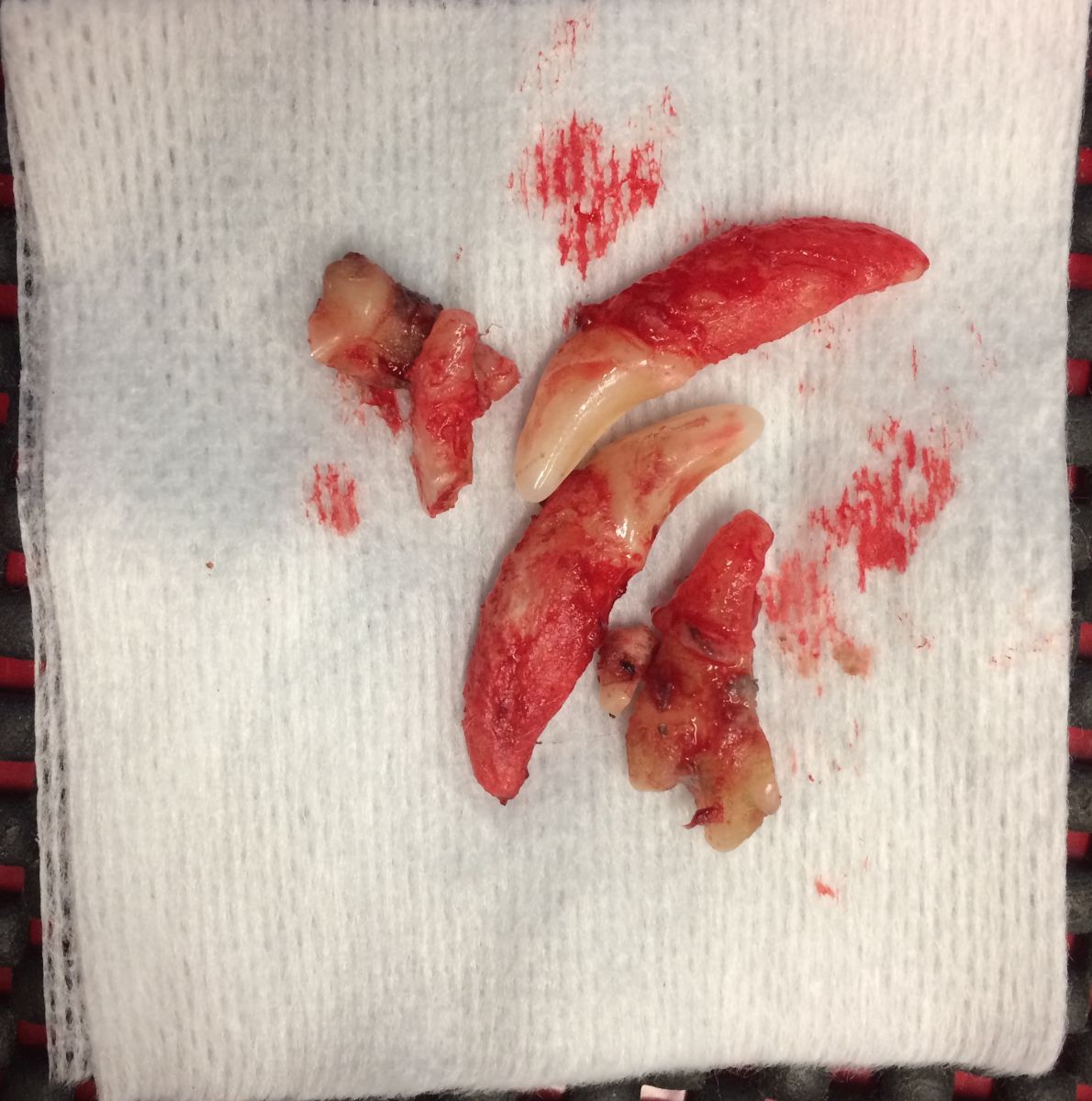People usually brush their teeth twice a day (and floss when they remember to), but what about our pets?
Dental disease in our pets is much more common than we might think. Just like people, dogs and cats get tartar, gingivitis, cavities, and periodontal disease.
Last week, a little poodle came to us with some pretty severe dental disease. He had bad breath, swollen gums, thick tartar and loose teeth. To do a proper dental exam, he was sedated and put under general anesthesia. We took x-rays (see below!) and examined his mouth, and decided the best treatment for him was to remove every tooth.



How can you tell if your pet is developing dental disease?
- Bad breath is an early sign of periodontal disease
- Red, swollen gums
- Yellow and brown staining of the teeth
- Painful mouth (Although very painful, most pets will continue to eat their food, so don’t wait for them to stop eating before seeing a vet!)
How can you help prevent dental disease at home?
- Brush your pet’s teeth regularly (every other day if possible) to remove plaque. Just the brushing action alone is enough to remove plaque but special pet toothpastes are available in lots of flavours to make brushing more enjoyable.
- Provide Veterinary Oral Health Council (VOHC*) approved chews to help remove plaque. Chews and bones that are too hard can fracture your pet’s teeth (If you wouldn’t want to whack your knee with it, it’s probably too hard for your pet).
- Feed your pet specially formulated diets to prevent dental disease
We saw our little poodle friend back this week and his owners said he was a new dog! He had much more energy and had started playing with his toys again. Getting those painful teeth out seemed to make a huge difference.
* The VOHC offers a list of products that are proven to slow plaque and tartar build-up (http://www.vohc.org/all_accepted_products.html)
